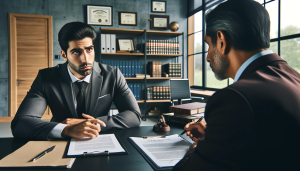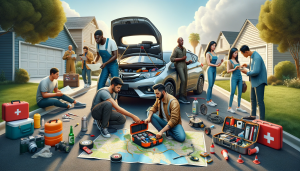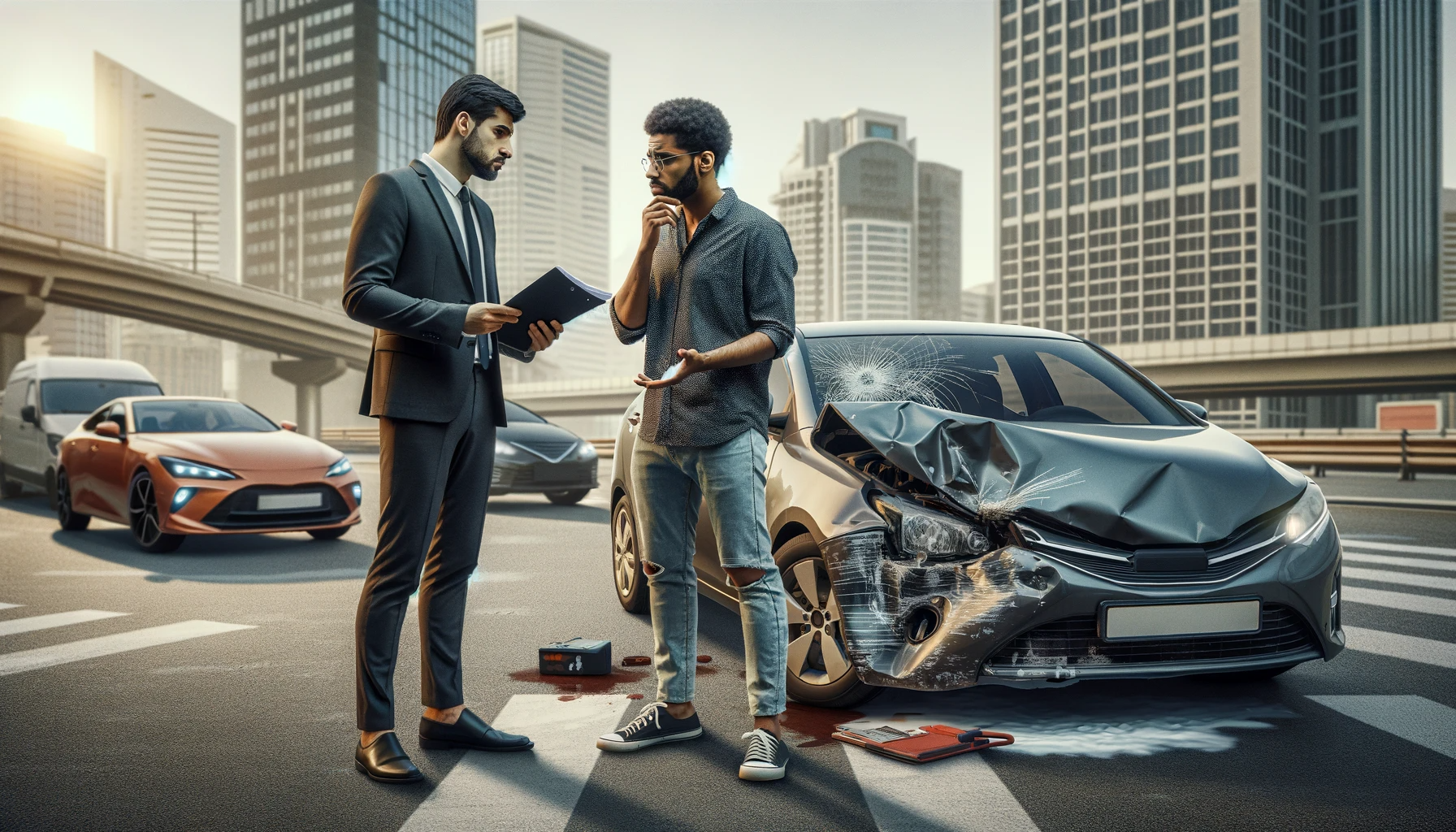Immediate Steps to Take After a Car Accident
Ensure Safety
The first thing you should do after a
car accident is to make sure everyone is safe. Check yourself and others for
injuries and move to a safe place if you can.
Call for Help
Next, call 911 to report the accident. The police and emergency medical services will come to help.
Document the Scene
If it's safe to do so, take pictures of the accident scene, the vehicles involved, and any visible
injuries. This can be helpful later when you're dealing with insurance and legal matters.
The Role of Police Reports
Importance of Filing a Police Report
Filing a police report is very important, even if the accident seems minor. The report will have details about the accident and can be used as evidence if you need to make an insurance claim or go to court.
How to File a Police Report
When the police arrive at the scene, they will ask questions and write a report. Make sure to get a copy of the report for your records.
Medical Attention and Records
Importance of Seeking Medical Help
Even if you feel fine after an accident, it's important to see a doctor. Some
injuries might not show up right away. Getting medical attention ensures you’re okay and provides a record of your
injuries.
Keeping Medical Records
Keep all medical records, including doctor’s notes and bills. These will be important if you need to file an insurance claim or seek compensation for your injuries.
Insurance Claims
How to File an Insurance Claim
To file an insurance claim, you need to contact your insurance company and provide details about the accident. They will guide you through the process and tell you what information they need.
What Information is Needed for an Insurance Claim
Typically, you’ll need:
- The police report
- Photos of the accident scene
- Medical records
- Contact information for any witnesses

Legal Representation
When to Consider Hiring a Lawyer
You might need a lawyer if the accident caused serious
injuries, if there is a dispute about who is at fault, or if the insurance company is not offering a fair settlement.
How to Find a Good Car Accident Lawyer
Look for lawyers who specialize in
car accident cases. You can ask for recommendations from friends and family, or search online. Make sure to read reviews and check their credentials.
Understanding Liability
Determining Who is at Fault
Determining who is at fault in a
car accident can be complicated. It often depends on traffic laws and the specifics of the accident. Sometimes, more than one person can be at fault.
Comparative Negligence
In some states, the concept of comparative negligence is used. This means that if you are partly at fault for the accident, your compensation might be reduced by your percentage of fault.
Compensation for Damages
Types of Compensation Available
You can get compensation for:
- Medical expenses
- Lost wages
- Car repairs
- Pain and suffering
How Compensation is Calculated
Compensation is calculated based on the severity of your
injuries, the cost of medical treatment, and other factors like lost income and emotional distress.
Common Myths About Car Accidents and Legal Resources
Myth 1: You Don’t Need a Lawyer if the Accident is Minor
Even minor accidents can have legal implications. A lawyer can help ensure you get fair compensation and avoid legal pitfalls.
Myth 2: The Insurance Company Will Handle Everything
Insurance companies often try to minimize payouts. It’s important to know your rights and consider legal advice to get the compensation you deserve.
Myth 3: You Can’t Get Compensation if You’re Partly at Fault
As mentioned earlier, comparative negligence means you can still get compensation even if you are partly at fault, though the amount may be reduced.
Legal Resources Available
Legal Aid Organizations
There are many organizations that offer free or low-cost legal help. These can be especially helpful if you can’t afford a lawyer.
Online Resources
Websites like Nolo and LegalZoom provide a lot of information about
car accident laws and legal resources.
Community Resources
Your local community might have resources like legal clinics or support groups that can help you navigate the aftermath of a
car accident.
The Importance of Traffic Laws
How Traffic Laws Can Prevent Accidents
Traffic laws are designed to keep everyone safe. Following speed limits, stopping at red lights, and not texting while driving are all ways to prevent accidents.
Consequences of Violating Traffic Laws
If you break traffic laws, you can get a ticket, lose your license, or even go to jail. Plus, you’re more likely to cause an accident.
Safe Driving Practices
Always wear your seatbelt, follow traffic laws, and stay focused on the road. Avoid distractions like texting or eating while driving.

Vehicle Maintenance
Regularly check your car’s brakes, tires, and lights. A well-maintained vehicle is less likely to be involved in an accident.
Educational Resources for Young Drivers
Driver’s Education Programs
Driver’s education programs teach young drivers the rules of the road and safe driving practices. These programs are often available through schools or community centers.
Online Courses and Resources
There are many online courses and resources that can help young drivers learn about safe driving and prepare for their driver’s license test.
Conclusion
Understanding the legal resources available after a
car accident is crucial. It can help you get the compensation you deserve and avoid legal trouble. Remember to stay safe, seek help when needed, and use the resources available to you.
Look for an attorney who has the right legal resources for your legal needs.
Contact us here on the
Warmuth Law website or through our hotline 888-517-9888.
Frequently Asked Questions (FAQ's)
1. What should I do immediately after a car accident?
Ensure everyone's safety, call 911, and document the scene if it’s safe to do so. Don’t forget to exchange information with the other driver.
2. How can I find a car accident lawyer?
Look for lawyers who specialize in
car accident cases. You can ask for recommendations, search online, and read reviews to find a reputable lawyer.
3. What if the other driver doesn’t have insurance?
If the other driver doesn’t have insurance, you can still seek compensation through your own insurance policy if you have uninsured motorist coverage. Additionally, you may be able to take legal action against the other driver to recover damages.
4. Can I get compensation if I’m partly at fault?
Yes, you can still get compensation if you’re partly at fault, depending on the laws in your state. Under comparative negligence, your compensation may be reduced by your percentage of fault, but you are not entirely barred from recovering damages.
5. How can I avoid getting into a car accident?
Avoiding
car accidents involves practicing safe driving habits. Always wear your seatbelt, follow traffic laws, avoid distractions like texting or eating while driving, and maintain your vehicle regularly to ensure it’s in good working condition.













